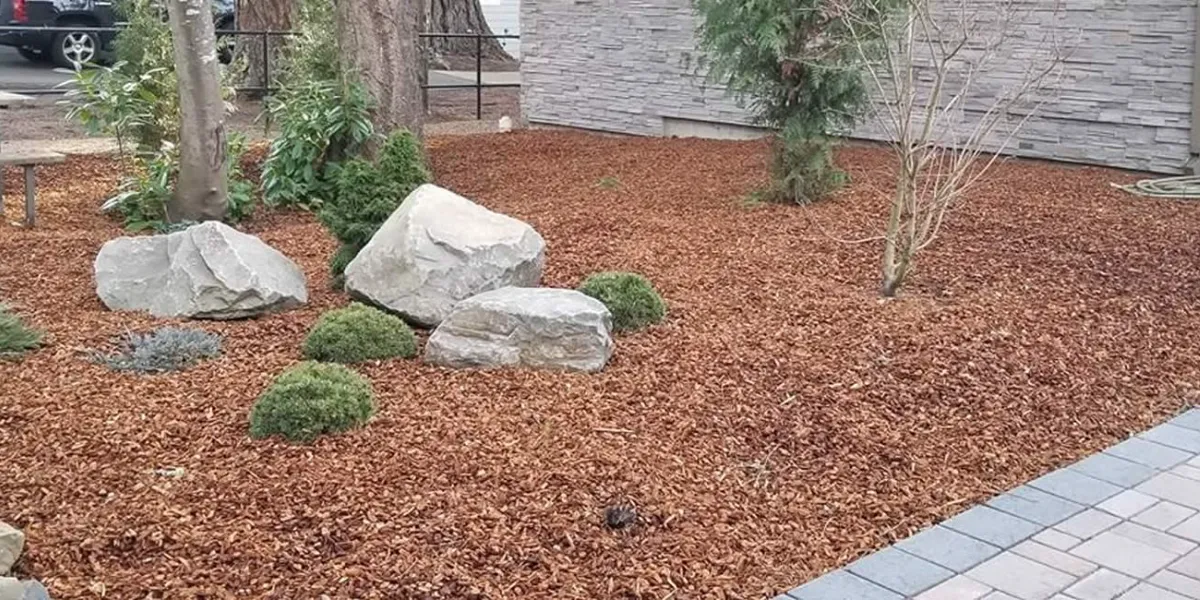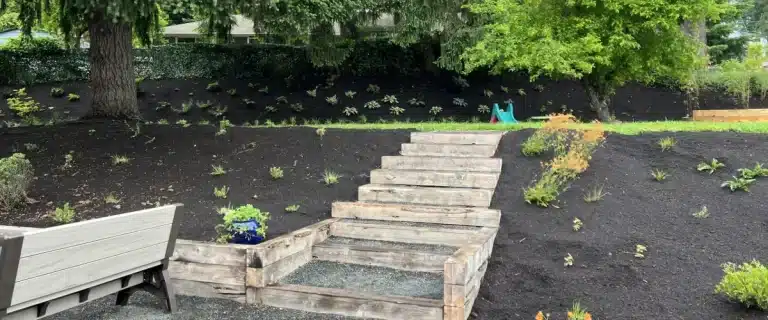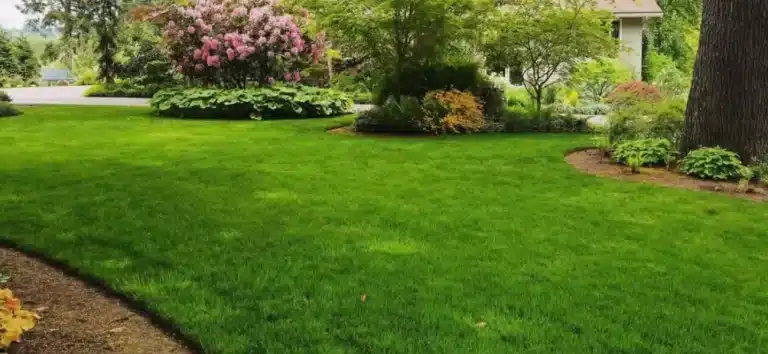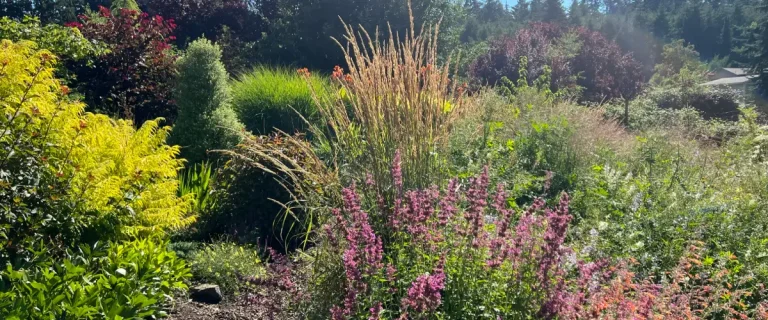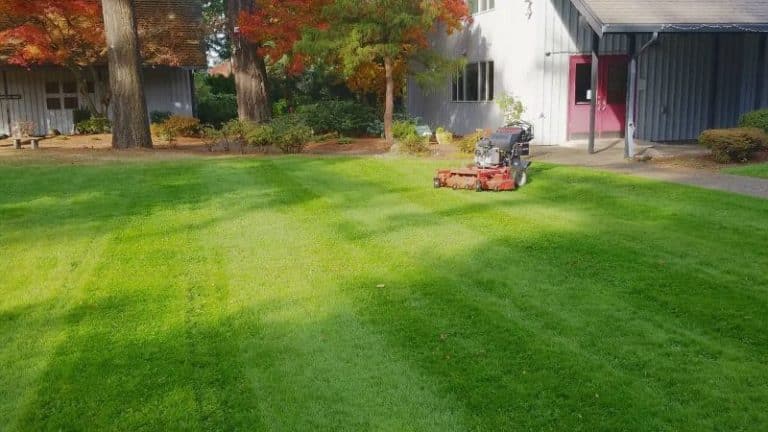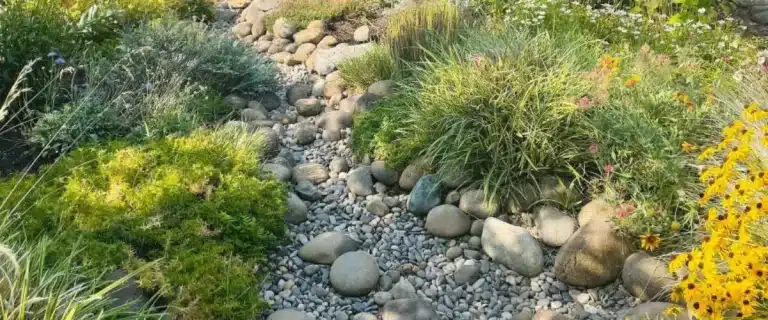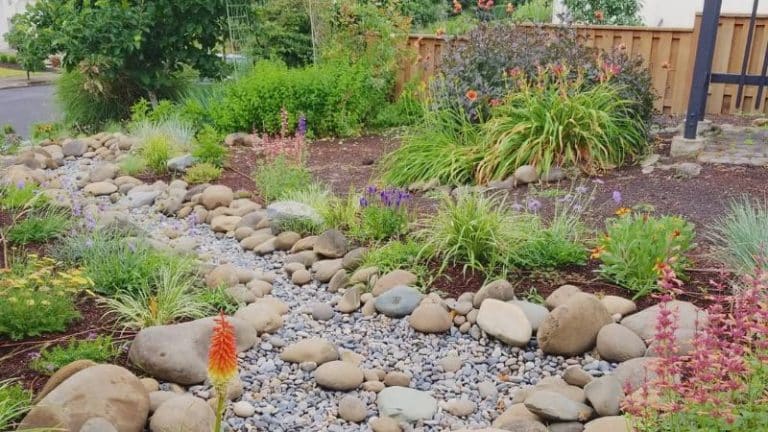Using Mulch to Save Water and Improve Soil Health
In Portland and throughout the Pacific Northwest, homeowners are increasingly looking for sustainable landscaping practices that conserve water, improve soil, and reduce maintenance. One of the simplest and most effective tools to achieve all three is mulch.
Whether you’re refreshing garden beds, installing a new landscape, or transitioning to a drought-tolerant yard, mulch can make a big difference. In this guide, we’ll explain what mulch is, how it helps conserve water, and why it’s essential for building healthy soil in our regional climate.
What Is Mulch?
Mulch is a material applied to the surface of the soil to cover and protect it. It plays a critical role in healthy landscaping by helping to regulate soil temperature, suppress weeds, conserve moisture, and improve soil structure over time. Mulch is one of the simplest yet most effective tools for maintaining a thriving landscape—especially in climates like Portland’s, where wet winters and dry summers can take a toll on exposed soil.
There are two primary categories of mulch:
-
- Organic mulch – Includes natural materials that decompose over time, such as bark chips, wood mulch, shredded leaves, straw, grass clippings, pine needles, or compost.
- Inorganic mulch – Includes non-decomposing materials like gravel, crushed stone, rubber mulch, or synthetic landscape fabric. These are often used in hardscape designs or areas where minimal plant growth is desired.
While inorganic mulches have their place—especially in modern or low-maintenance designs—they do not contribute to soil health. Organic mulches, on the other hand, provide both functional and biological benefits as they break down. They feed beneficial microbes, improve soil texture, and support long-term plant health.
Why Organic Mulch Is Our Go-To Recommendation
At White Oak Landscaping, we primarily recommend and install organic mulch for residential and commercial properties in Portland and surrounding areas. Here's why:
-
- It naturally decomposes, adding organic matter back into the soil
- It supports soil biology, encouraging beneficial bacteria, fungi, and earthworms
- It insulates plant roots against temperature extremes
- It improves moisture retention and reduces the need for frequent irrigation
- It creates a clean, polished look in garden beds, pathways, and around trees and shrubs
Whether you're installing a new garden bed, updating your foundation plantings, or looking to reduce lawn size, mulch is a low-maintenance, high-impact way to improve the health and appearance of your landscape.
How Mulch Helps Conserve Water
Mulch plays a critical role in reducing landscape water usage—especially during Portland’s increasingly dry summers. Here's how:
-
- Reduces evaporation by shielding the soil from direct sun exposure
- Keeps soil cooler, which helps plant roots retain moisture
- Improves water absorption by minimizing runoff during rain or irrigation
- Eliminates competition from weeds, which also draw moisture from the soil
In well-mulched beds, you can expect to use 25–50% less water than in bare soil areas. This makes mulch a vital part of any xeriscape or water-wise garden.
How Mulch Improves Soil Health
Beyond water conservation, mulch is a powerhouse for building healthier, more resilient soil.
-
- Feeds beneficial microbes and earthworms as organic mulch decomposes
- Increases organic matter, improving soil texture and fertility
- Reduces compaction by protecting soil from heavy rainfall and foot traffic
- Balances soil temperature, reducing plant stress during hot and cold periods
Healthy soil is the foundation of every successful landscape. We often pair mulch with compost topdressing and soil amendments to restore depleted soils and improve long-term performance.
Types of Mulch We Recommend
The type of mulch you choose should match your landscape goals, plant selection, and style preferences. Some of the most common mulch types we install in Portland-area yards include:
Bark Mulch
-
-
- Made from shredded tree bark (often fir or hemlock)
- Breaks down slowly, making it ideal for long-term weed suppression
- Adds a natural, finished look to garden beds and borders
-
Wood Chips
-
-
- Coarser than bark mulch, offering excellent moisture retention
- Great for trees, shrubs, and pathways
- May decompose faster depending on size and type
-
Compost Mulch
-
-
- Rich in nutrients and ideal for vegetable gardens and flower beds
- Breaks down quickly, improving soil in the short term
- Best applied in thinner layers to avoid compaction
-
Gravel or Decorative Stone
-
-
- Doesn’t decompose, making it useful in modern or dry landscape designs
- Ideal around succulents or in rain gardens
- Offers little to no benefit for soil health
-
At White Oak Landscaping, we help you choose the best mulch based on your yard's needs, your goals, and the specific plantings in each area.
When and How to Mulch
We typically recommend mulching in spring or fall, when plants are preparing for seasonal changes. For best results:
-
- Apply mulch 2–4 inches deep around plants, keeping it a few inches away from trunks or stems
- Refresh mulch annually or every two years, depending on the material
- Avoid piling mulch directly against plant bases, which can lead to rot or pest issues
We offer professional mulch installation services throughout Portland and surrounding areas to ensure proper depth, coverage, and clean finish.
Mini Case Study: Mulching for Drought Resilience in Oregon City
A client in Oregon City wanted to reduce water usage and improve the struggling soil in their ornamental planting beds. We removed the existing weedy top layer, amended the soil with compost, and installed a 3-inch layer of dark fir bark mulch. Within one season, their plants were more vibrant, weeds were nearly eliminated, and irrigation needs dropped by over 40%. The beds now retain moisture even through the hottest summer days—without looking dry or neglected.
Proudly Serving Portland and Surrounding Areas
White Oak Landscaping provides mulch delivery and professional installation as part of our full-service landscape solutions. We serve homeowners in:
-
- Portland
- Oregon City
- Lake Oswego
- West Linn
- Tualatin
- Milwaukie
- Damascus
- Surrounding communities throughout Clackamas County
Ready to Improve Your Landscape With Mulch?
Save water, nourish your soil, and refresh your garden beds—starting today. At White Oak Landscaping, we make it easy to enhance your yard with high-quality mulch and expert installation.
Call now or request a estimate to get started. We proudly serve Portland, Oregon City, Lake Oswego, West Linn, Tualatin, Milwaukie, Damascus, and nearby areas with sustainable landscaping solutions designed for the Pacific Northwest.

